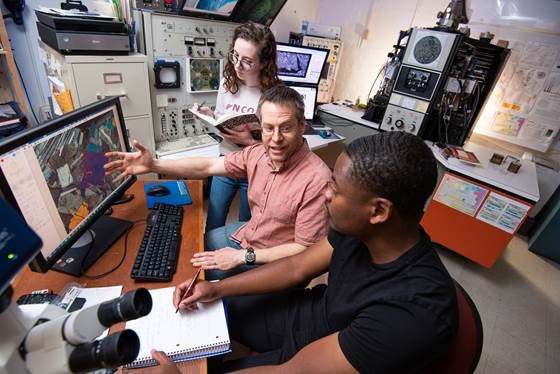Concord University will be one of two places in the world to have a certain type of X-ray diffracting crystal. The manufactured crystal is capable of capturing invisible light wavelengths, known as X-rays, to determine the chemical makeup of certain materials.
This crystal is used as part of an electron microscope, and can collect information from materials at sizes as small as 1/1000th of a millimeter — to put that in perspective, a fine grain of sand is 1/10th of a millimeter.
Concord officials said this is the first of several federally-funded upgrades to Concord’s lab and a key step to the development of Concord Materials and Rare Earth Element Analysis Center.
Stephen Kuen, associate professor of Geology and Earth Science and director CU Electron Microprobe Laboratory, is managing this project. Kuen said that often the rays of light given off by different materials mix, and become muddled so that it’s hard to determine the different chemical components.
“So this crystal is able to better separate those X-rays so that we can get much better measurements of the individual elements,” Kuen said. “And that also helps to better detect things that are present at very, very low concentrations.”
Kuen said this technology could be useful to industries that depend on sourcing rare earth elements.
“People are looking to develop sources of those elements,” Kuen said. “If we’re able to measure them better and source materials, that can help people looking for for those [materials]”
Students at Concord will be the major users of this technology and will have learning experiences that they won’t be able to get anywhere else, according to Concord officials.
The project to develop these instruments as part of a new lab at the university cost just under $1 million, most of which was federally earmarked funds allotted to this project.
Kuen said funding was the biggest challenge in procuring this instrument and in adding to Concord’s scientific facilities.
“We were just delighted,” Keon said. “I think, when this most recent attempt at funding went somewhere, and went somewhere in a big way, it’s really opening a lot of doors and unlocking a lot of possibilities.”
